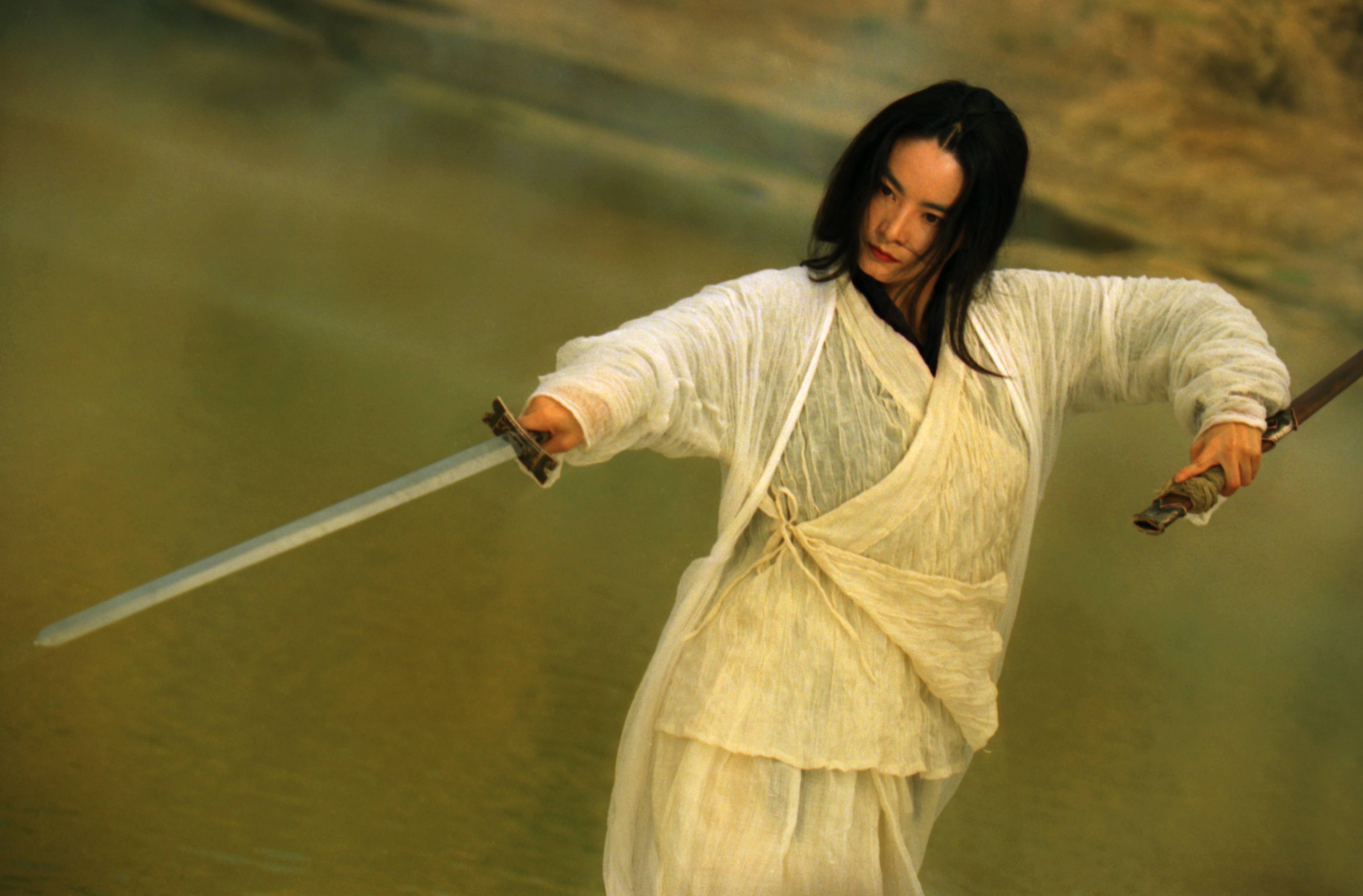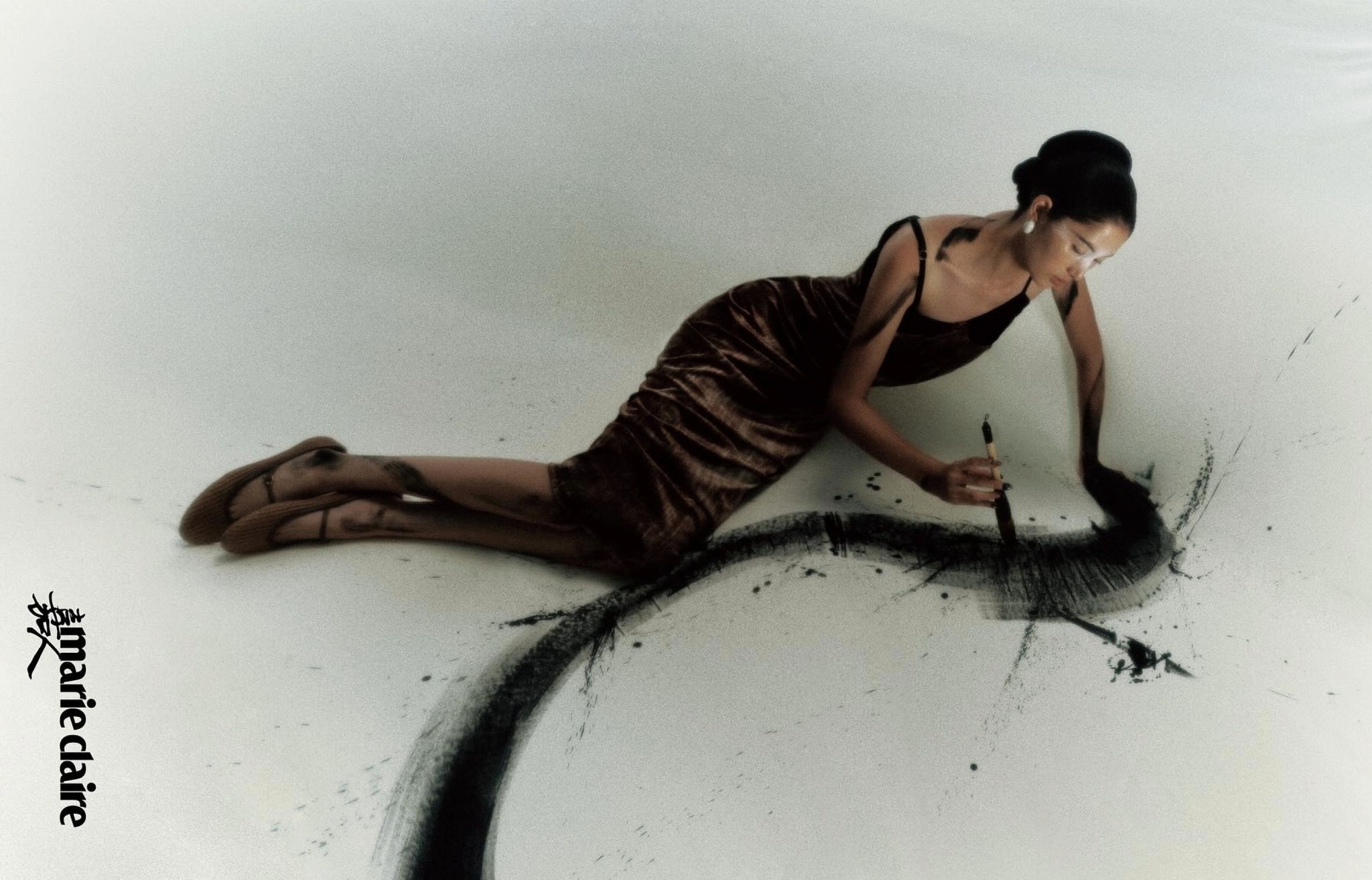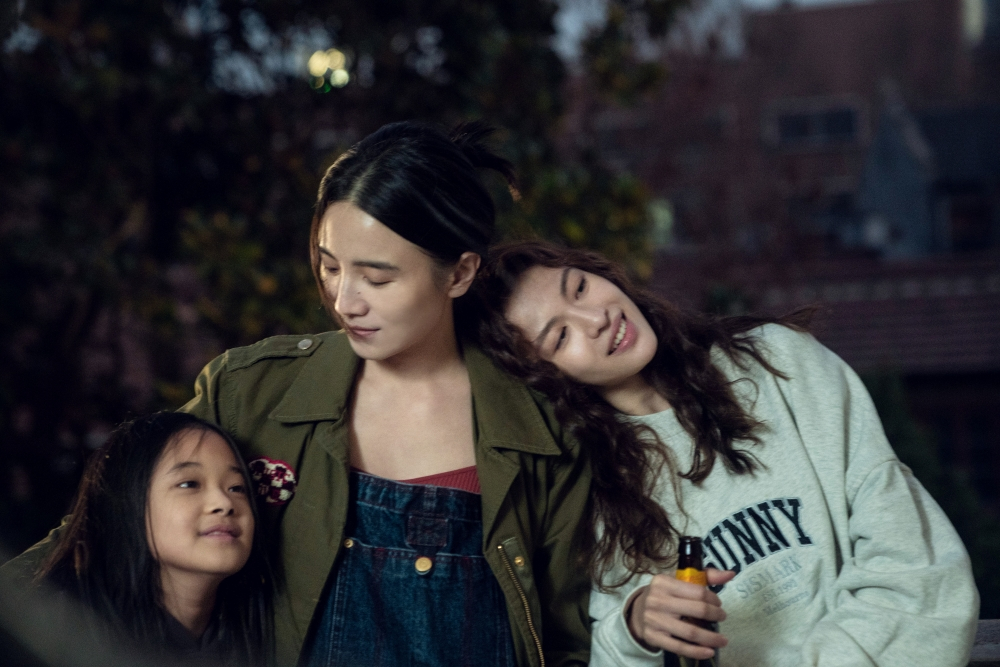2020 was a mistake. We should have either stayed in 2019, or gone straight to 2021.
Of course, Wuhan fell into the global spotlight as the first documented site of the Covid-19 pandemic, ultimately impacting lives around the globe.
But so much beyond that has happened, and nobody was able to soak it in. Rinsing anxiety sweat-stains from your eco-friendly facemask, you may have missed some gems.
This was the year that gave us the only version of “Yi Jian Mei” that matters. We feared for Jackie Chan, and we cringed for Mulan. 2020 was a wild ride — here are ten moments that prove it was viral in more ways than one.
Wuhan’s Quarantine
Covid-19’s first documented outbreak in (and the subsequent quarantine of) Wuhan was hands-down the most “viral” moment of 2020, as the eyes of the world fell on China in those early moments of collective uncertainty.
That was back when the thought of an official quarantine order sounded like a far-off dystopian concept. No one knew that Wuhan’s response would be echoed in different forms around the world throughout 2020 and that we’d all have to get used to the word “lockdown.”
Related:
 After 76 Days, Wuhan Emerges from LockdownThe city that has become synonymous with the novel coronavirus outbreak tentatively reopensArticle Apr 08, 2020
After 76 Days, Wuhan Emerges from LockdownThe city that has become synonymous with the novel coronavirus outbreak tentatively reopensArticle Apr 08, 2020
That initial moment was defined by a sense of collective solidarity in the Chinese city. Online, clips spread of neighbors chanting together to “add oil” while quarantined inside their high rise apartments, an expression of encouragement. Hospitals were built at breakneck speeds to treat the influx of patients, yielding one of 2020’s unexpected trending phrases — “virtual construction supervisors,” a term coined when the public was invited to livestream the construction process.
Of course, there was a significant amount of outrage and fear too. In particular, the tragic death of Dr Li Wenliang sparked an outpouring of anger online. Yet as much of China has returned to normal while watching large parts of the rest of the world struggle to get Covid-19 under control, the narrative has been shifted to one of national strength.
What happened next? Think you know the answer to this one. As for Wuhan itself, well there was this…
Images of crowds at waterpark festival in Chinese city of Wuhan – where Covid-19 first emerged – show how far the city’s moved on from its lockdown in January https://t.co/ugESlzvMZG
— BBC News (World) (@BBCWorld) August 18, 2020
BTS Caused an Unintentional International Beef
BTS, totally innocent, at the center of an out-of-context beef between East Asian powers.
When BTS received the Van Fleet Award — named after a US commander and awarded annually to those who have helped build US-Korean relations — the group’s RM said a few words of gratitude in a virtual acceptance speech.
Related:
 BTS Face China Backlash Over Korean War CommentsThe K-pop group are seeing brands turn their backs in China after some took offence over comments by RMArticle Oct 13, 2020
BTS Face China Backlash Over Korean War CommentsThe K-pop group are seeing brands turn their backs in China after some took offence over comments by RMArticle Oct 13, 2020
“We will always remember the history of pain that our two nations shared together and the sacrifices of countless men and women,” he said.
That may seem like a harmless statement, but in China — a country that fought against South Korea and the US in that war and was about to mark the anniversary of the conflict — it was blown out of proportion and taken as a sleight, causing blowback for BTS-backed products in the mainland, as well as for the country of South Korea as a whole.
What happened next? There was a slew of Korean War-themed films and TV programs in China — which had been planned anyway — but the anti-BTS movement quickly faded when the angry forces realized the K-pop stars were just too big a target to take down.
Jackie Chan Almost Drowned
Jackie Chan starred in this year’s Vanguard, a kitschy action flick that saw him taking on the role of a high-powered CEO. The movie was supposed to come out in early 2020, but was delayed by the outbreak of the pandemic.
It didn’t come without a customary pre-release hype nugget, though. In September, a behind-the-scenes clip surfaced and began trending on Weibo under the hashtag #Jackie Chan Almost Drowns#.
Related:
 Jackie Chan Almost Drowned While Filming, and the Internet is Losing ItNetizens are in an uproar over Jackie’s brush with deathArticle Sep 15, 2020
Jackie Chan Almost Drowned While Filming, and the Internet is Losing ItNetizens are in an uproar over Jackie’s brush with deathArticle Sep 15, 2020
In the clip, Jackie can be seen slipping off a jet ski, and getting pulled beneath the current. A few tense moments pass, and director Stanley Tong begins crying, before the star resurfaces unharmed.
Jackie recounts, “I pushed, pushed, pushed the jet ski, and as soon as it was out of the way — boom! — the current pushed me out of the water.”
“It was like a divine spirit saved me,” he added.
What happened next? When it did finally come out, the film bombed, drawing just 246 million RMB domestically (around 37 million USD) in its first two weeks — the worst-performing of all the Golden Week holiday blockbusters.
“Yi Jian Mei” Became a Thing
It feels like a lifetime ago that an old Mandarin jam rose to TikTok infamy. But indeed, this was the year of “Yi Jian Mei,” known to most as “that Chinese TikTok song.”
The 1983 classic — the performed by Taiwanese singer Fei Yu-ching — was originally the theme song for a popular TV drama series. Fei retired last year, but probably didn’t expect his 37-year-old song to take off, reaching the top ranks in Spotify in Sweden, New Zealand, and Norway.
Related:
 A 37-Year-Old Mandarin Song is Now a Global TikTok SensationA classic hit from 1983 has become an international meme – but how?Article Jun 17, 2020
A 37-Year-Old Mandarin Song is Now a Global TikTok SensationA classic hit from 1983 has become an international meme – but how?Article Jun 17, 2020
The thing that started it all was a clip from humble farmer Zhang Aiqin, singing the song in the snow. Against a backdrop of global boredom, the song managed to reach mainstream listeners on the US version of TikTok.
What happened next? China’s internet was baffled by the occurrence, but not displeased. And, as TikTok memes tend to, this one rumbled on until it was replaced by something else.
Discussions on Women’s Rights and Sexual Abuse Came to the Fore
Although #MeToo started to gain ground in China in 2018, 2020 was a watershed year for online discussion of women’s rights and sexual abuse.
For one, changes to the national civil code sparked backlash, specifically over a proposed “30-day cool down” period for couples seeking divorce. The legislation was intended to fight China’s rising divorce rate, but was criticized as insensitive to victims of domestic abuse.
Related:
 China’s New Civil Code Looks to Clarify Sexual Assault, Family Planning and Data Privacy LawsThe new civil code is intended to create synergy for a previously wide range of loose civil laws and regulationsArticle Jun 04, 2020
China’s New Civil Code Looks to Clarify Sexual Assault, Family Planning and Data Privacy LawsThe new civil code is intended to create synergy for a previously wide range of loose civil laws and regulationsArticle Jun 04, 2020
Another item in that civil code clarified what was previously something of a legal grey area — definitions around sexual assault. The new code was wider-reaching than many had expected, including text and imagery, for instance, and binding schools and workplaces to terms of institutional responsibility.
In the wake of these new regulations, a few high-profile cases caught waves of public interest.
In July, a Chengdu social worker won China’s first sexual harassment lawsuit. And earlier this month Zhou Xiaoxun, known in the news as Xianzi, took legendary TV icon Zhu Jun to court for groping and forcibly kissing her during her time as an intern at CCTV.
Related:
 Intern Stands Up to TV Star in Landmark Case for #MeToo in ChinaThe landmark #MeToo case shows the systemic challenges facing survivors of sexual abuseArticle Dec 03, 2020
Intern Stands Up to TV Star in Landmark Case for #MeToo in ChinaThe landmark #MeToo case shows the systemic challenges facing survivors of sexual abuseArticle Dec 03, 2020
The cases were just two instances where sexual abuse and women’s rights trended in China’s online spaces, where the subjects would have been previously viewed as taboo.
What happened next? Where we go from here is somewhat unclear. The last few months have seen a surge of activity and debate around women’s rights in China, but how long those conversations will be allowed to blossom for remains to be seen. And that divorce “cooling off period” is set to be implemented from January 1, so it’s clear that, even when allowed to take place, such discussions don’t necessarily have an impact on policy.
Mulan Flopped
Mulan was the big swing — and even bigger miss — that echoed through entertainment in 2020.
The live-action film was a major project for Disney, as a title that had the potential for success in the crucial China film market while also appealing to the US nostalgia market. That balancing act did not pay off, though.
Related:
 What Do Chinese Viewers Think of Disney’s “Mulan” Remake?The reviews for the latest Disney “Mulan” release are in and Chinese netizens are not impressed by the performances or the film’s plotArticle Sep 05, 2020
What Do Chinese Viewers Think of Disney’s “Mulan” Remake?The reviews for the latest Disney “Mulan” release are in and Chinese netizens are not impressed by the performances or the film’s plotArticle Sep 05, 2020
Admittedly, the Covid-19 pandemic did ruin release plans, forcing Disney into a weird streaming-only opening in the States for 30USD. But the release strategy was honestly the last thing on anyone’s mind — folks were too focused on how bad the movie was.
Viewers roasted historical inaccuracies, comparing the film to the cinematic equivalent of American Chinese food. Ratings tanked on film review site Douban, and elsewhere, a homegrown, animated version of Mulan’s story managed to do even worse.
Related:
 “Mulan” Through the Ages: Riots, Rebellions, and Kung Fu RetellingsMulan’s story has gone through numerous iterations over the centuries, often getting twisted to suit the politics of the timeArticle Sep 11, 2020
“Mulan” Through the Ages: Riots, Rebellions, and Kung Fu RetellingsMulan’s story has gone through numerous iterations over the centuries, often getting twisted to suit the politics of the timeArticle Sep 11, 2020
What happened next? Hopefully Mulan became a teachable moment for Hollywood studios pandering to the Chinese market. But don’t hold your breath. Announcements that Netflix was to take on a Three-Body Problem adaptation and a Water Margin project sparked some to cry “not another Mulan.”
Xiao Zhan Fans Brought Down AO3
Xiao Zhan, premier little fresh meat icon and star of Daoist boys’ love drama The Untamed, has had a rough year.
Xiao stars opposite fellow heartthrob Wang Yibo in a production that aims to honor the homoerotic themes of its source material within the tightly-regulated arena of Chinese television broadcasting — it’s only natural that fandom culture would embrace it through acts of fan art and fanfiction.
Related:
 AO3 Xiao Zhan Drama Sparks High-Stakes War in Boys’ Love FandomIt’s RIP to AO3 for users in the PRCArticle Mar 03, 2020
AO3 Xiao Zhan Drama Sparks High-Stakes War in Boys’ Love FandomIt’s RIP to AO3 for users in the PRCArticle Mar 03, 2020
But fanfiction became complicated when one story on AO3 — a long-held bastion for lovers of yaoi and boys’ love in China — drew ire from some fans. The steamy fic reimagined Xiao as a prostitute, and the idol’s fandom didn’t take it well. Xiao Zhan stans reported AO3 to censorship authorities en masse, ultimately succeeding in getting the site blocked.
Suddenly, all sorts of China-based fandoms found themselves without their favorite site. All other fandoms, and thus the collective internet, rose up to speak out against the Xiao fan group’s coordinated military assault.
Related:
 Chinese Fanfiction is Entering Into (and Upsetting) the MainstreamThe world of Chinese fanfiction has been beset by murky copyright issues and high-profile controversies with real world consequences – can it continue to thrive online?Article Dec 10, 2020
Chinese Fanfiction is Entering Into (and Upsetting) the MainstreamThe world of Chinese fanfiction has been beset by murky copyright issues and high-profile controversies with real world consequences – can it continue to thrive online?Article Dec 10, 2020
What happened next? As a result of the controversy and a coordinated fightback from anti-Xiao Zhan fans, the star lost several sponsorships and had to retreat into the shadows to rectify his public image. The whole ordeal earned Xiao’s fans an identity as the worst fan group of all time — a notion they’ve been working hard to change ever since.
Mental Health Became a Major Issue Amid the Pandemic
A study conducted by one of China’s biggest online counseling platforms ended up kicking off a long overdue conversation about mental health.
The study, which correlated rates of depression with severity of the Covid-19 outbreak, drew responses from mainstream media outlets, and thrust the discussion into the national spotlight. Hashtags such as #The Depression Rate in China is 2.1%# and #There are an Estimated 300 Million Depression Patients Globally# trended on Weibo as a result.
Search activity for mental health-related terms like “psychological help” reached a ten-year high at the beginning of 2020.
Related:
 How 2020 Kicked Off a Nationwide Discussion about China’s Hidden EpidemicThanks to online discussion, stigma around depression is beginning to erodeArticle Nov 02, 2020
How 2020 Kicked Off a Nationwide Discussion about China’s Hidden EpidemicThanks to online discussion, stigma around depression is beginning to erodeArticle Nov 02, 2020
What happened next? Schools added screening for depression as part of annual physical exams for high school and college students, as China began to take the issue more seriously. Even tech companies got involved, with music streaming site NetEase introducing special measures to combat depression on its platform.
Suspense Dramas Got Suspended
Modern Chinese TV has always been rather sanitized. So folks were understandably excited when iQIYI debuted its hit drama The Bad Kids.
The series, which followed serious themes such as murder and child abuse, was a breath of fresh air with audiences, trending and generating intense discussion on social media.
That’s why it hit hard when the remainder of iQIYI’s drama series were suddenly suspended, deemed too edgy for regulatory authorities. The “Mist Theater” series of mystery/suspense dramas was intended to include six titles, of which The Bad Kids was only the second.
Related:
 Hit Thriller “The Bad Kids” is Stirring Conversations About Childhood Trauma – and Chinese TVThe TV drama of the moment brings a welcome darker edge to mainstream Chinese entertainmentArticle Jun 29, 2020
Hit Thriller “The Bad Kids” is Stirring Conversations About Childhood Trauma – and Chinese TVThe TV drama of the moment brings a welcome darker edge to mainstream Chinese entertainmentArticle Jun 29, 2020
But after the show blew up, the remaining four titles were suddenly suspended. It was a harsh reminder to viewers that Chinese TV, even in the age of modern streaming, had not yet entered a much-needed “anything goes” era.
What happened next? After a lengthy break, the Mist Theater series of gritty programming did eventually return on iQIYI, though how much the remaining series had been altered is unclear. And of course, Chinese authorities continued to censor plenty of other entertainment beyond these dramas, even getting Zhang Yimou’s already long-delayed movie One Second pulled at the last minute from the country’s own showpiece film festival.
Kung Fu Masters Embarrassed Themselves
Amidst large-scale athletic cancellations in 2020, MMA managed to power through — much to the dismay of the former “kung fu master” community.
MMA trainer Xu Xiaodong broke into the international spotlight on his quest to expose fake kung fu. His first major fight against a so-called “thunder-style tai chi master” ended in just 20 seconds, prompting a string of repeat performances.
What happened next? In 2020 the trend continued in full swing, getting so bad that the Chinese Wushu Association had to issue a statement against glorifying your own kung fu, advising that practitioners should not refer to themselves as “kung fu masters” or “head” of a specific style.
Related:
 Chinese Martial Artists Must Stop Calling Themselves “Masters”, According to Official DecreeSuddenly, China’s biggest martial arts organization has joined the fight against kung fu “frauds”Article Jul 11, 2020
Chinese Martial Artists Must Stop Calling Themselves “Masters”, According to Official DecreeSuddenly, China’s biggest martial arts organization has joined the fight against kung fu “frauds”Article Jul 11, 2020
2020 was a year to remember… or to forget.
Either way, it’s important to pause for a moment and reflect on all the things that happened. This year was more than just record-breaking Netflix binges and drunken Zoom calls with former classmates — it was a spectacle of togetherness, as the world navigated one collective sh*tstorm, and millions of individual sh*tstorms.
Here’s to the viral moments of 2020; may they never be forgotten.


















